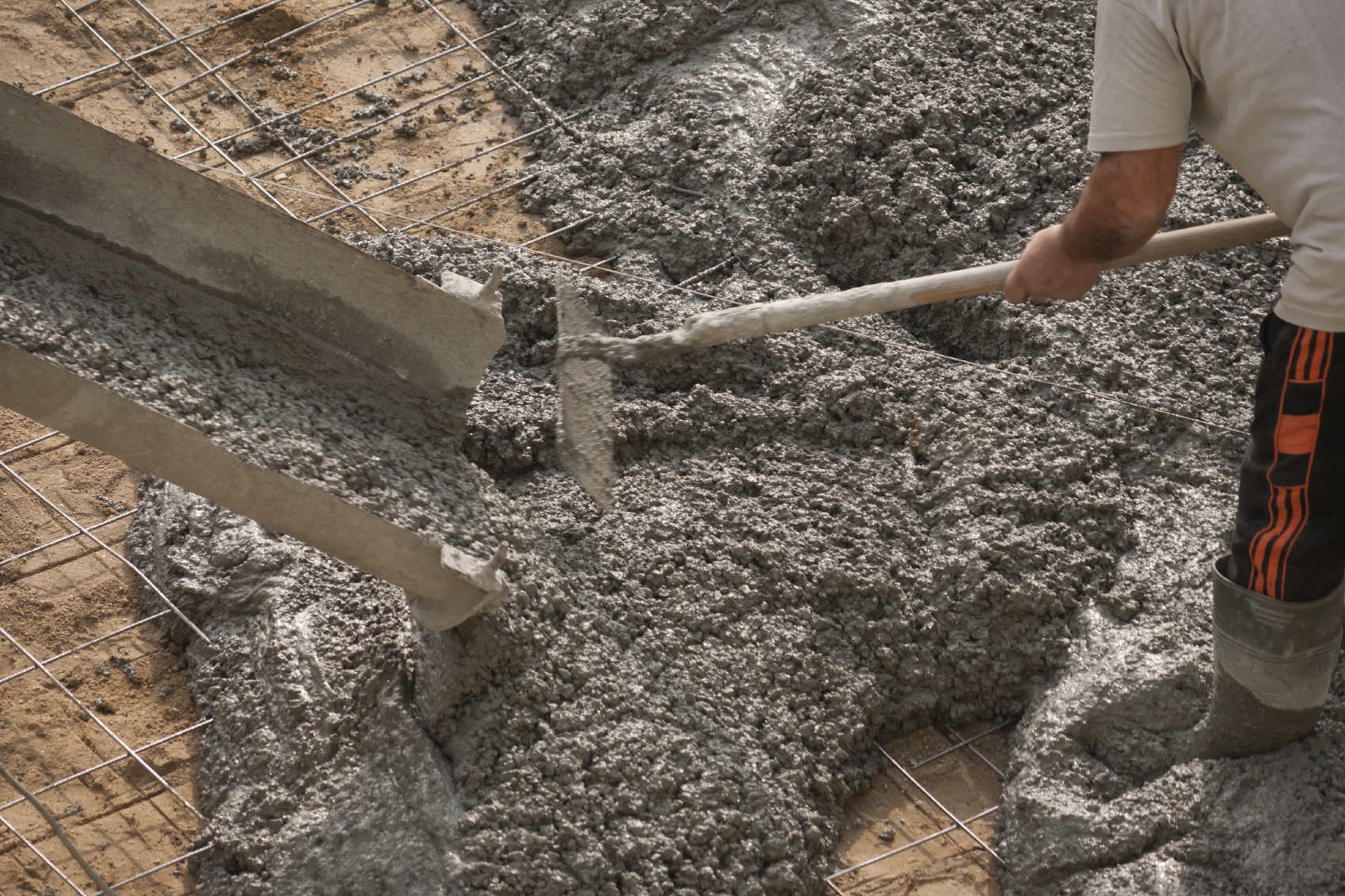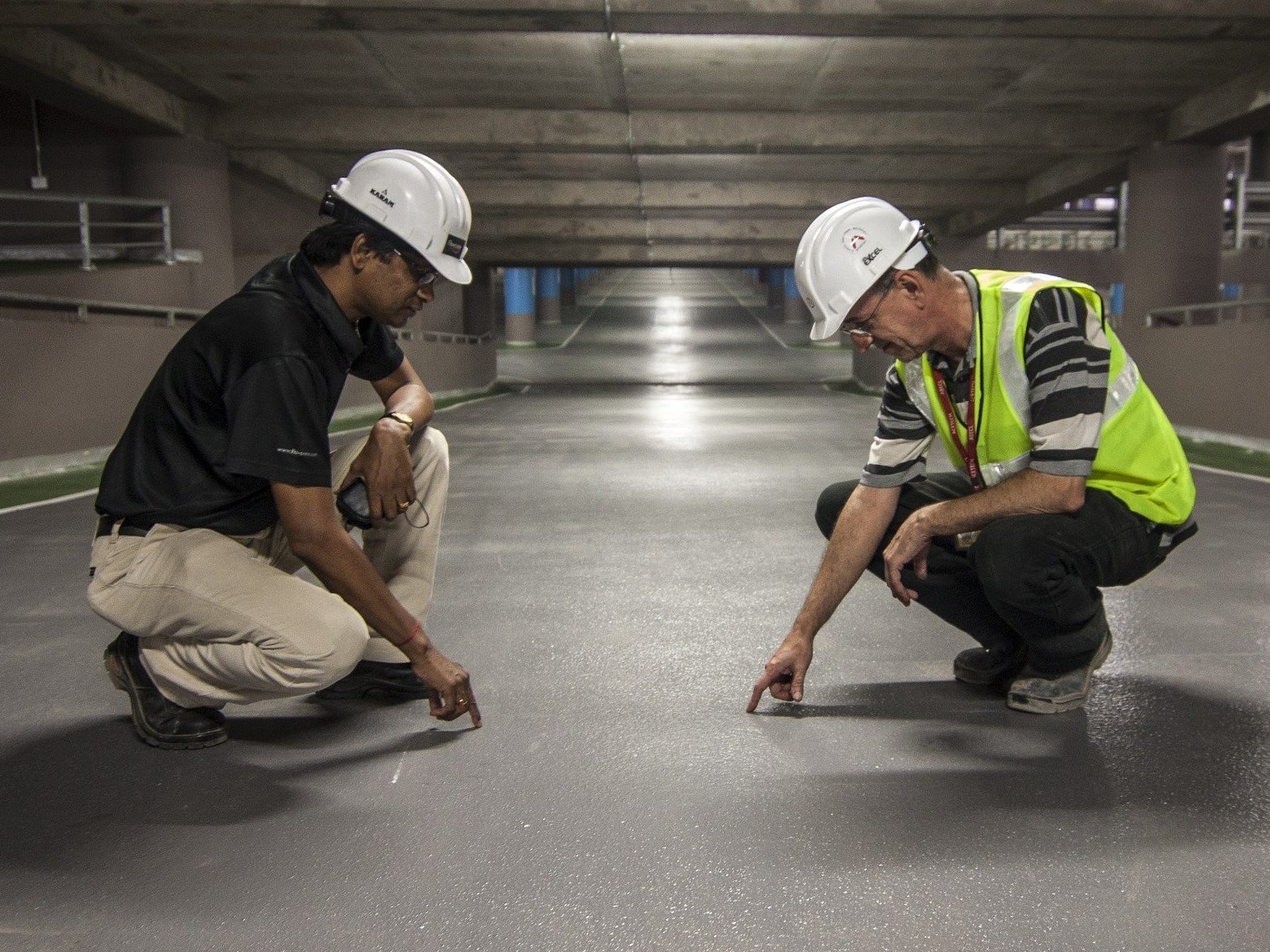West Coast General Engineering concrete foundation: Comprehensive Tutorial for Long-Term Structural Success
The Vital Function of Concrete Foundation in Structural Integrity and Longevity
When it concerns developing a residential property, the structure is a lot more important than you could assume. Concrete structures supply unmatched strength and resilience, ensuring your framework can endure various environmental obstacles. Without a strong base, you take the chance of prospective issues like shifting or fracturing, which can endanger security and value. Understanding the subtleties of concrete foundations can be the secret to preserving your financial investment for several years to find. So, what should you think about next?
Comprehending the Value of Concrete Foundations
Concrete foundations are essential to the general stability of any kind of structure, as they give the necessary support needed to withstand numerous loads and ecological conditions. When you consider constructing a home or a commercial area, the foundation is the very first thing you need to think about. It acts as an obstacle against wetness, securing your building from water damage. A well-placed concrete structure likewise prevents settling and moving, which can bring about fractures in wall surfaces and floors. You'll intend to guarantee that the structure is properly developed and enhanced, as this affects the durability of your structure. Additionally, a solid structure can improve power efficiency by lowering air leakages. Bear in mind, neglecting the value of a concrete foundation can bring about costly repair work down the line. Investing in a top quality structure upfront is necessary for the honesty and durability of your framework.
Benefits of Concrete Structures for Architectural Honesty
While several factors add to a building's structural stability, concrete foundations use unequaled durability and strength. You'll appreciate that concrete can hold up against severe climate condition, resisting both moisture and temperature variations. This strength indicates your framework is much less likely to experience splitting or moving in time, which can jeopardize its safety.Additionally, concrete's fundamental weight offers a solid base, avoiding activity during all-natural occasions like earthquakes or floodings. When you choose a concrete foundation, you're additionally deciding for low upkeep; unlike wood, it will not rot or draw in bugs, conserving you time and money in repairs.Moreover, concrete's fire resistance provides added safety, ensuring your framework can withstand heats without considerable damages. Generally, buying a concrete foundation suggests you're prioritizing the long-lasting stability and honesty of your building, making it a wise selection for any type of building and construction job.
Typical Sorts Of Concrete Foundations
When it involves developing foundations, comprehending the common kinds of concrete foundations can help you make informed options for your project. One of the most prevalent kinds include slab-on-grade, crawl room, and full cellar foundations.A slab-on-grade structure is an easy, affordable alternative, where a thick concrete piece is poured directly on the ground. This kind works well in cozy environments, as it lessens heat loss.Crawl area foundations boost the home somewhat above ground, enabling ventilation and access to pipes and electrical systems. This layout can help protect against moisture issues.Full cellar structures provide added living or storage room while supplying outstanding architectural support. They require even more excavation and are typically utilized in cooler climates to avoid frost heave.
Variables to Consider When Creating a Concrete Structure

Best Practices for Setting Up Concrete Foundations
When you're mounting a concrete foundation, appropriate site preparation is crucial to ensure security (WCGE commercial concrete). You'll also need to comprehend support strategies to boost strength and toughness. Ultimately, do not overlook the curing process, as it plays an essential function in accomplishing a strong foundation
Site Prep Work Importance
It might seem uncomplicated, appropriate site prep work is important for assuring a solid and durable concrete structure. Start by getting rid of the location of any particles, plants, or organic product that could jeopardize the structure's stability. Next, examine the soil kind and compaction; you might require to excavate or include products to create a stable base. Degree the ground to guarantee also weight distribution and stay clear of working out concerns later. Mounting correct drainage systems is additionally important to protect against water build-up, which can damage the foundation with time. Finally, define the structure's dimensions precisely to guide the pouring procedure. By complying with these actions, you'll set the stage for an effective concrete structure that stands the test of time.
Reinforcement Methods Explained
Once the site is effectively prepared, the next action in assuring a durable concrete structure entails silicone concrete stamps implementing efficient support strategies. You need to start by utilizing steel rebar, which supplies tensile toughness and helps avoid splitting. Lay the rebar in a grid pattern, making certain it's raised using spacers to maintain proper coverage. Furthermore, think about utilizing cable mesh for extra support, especially in areas based on hefty lots. Do not forget to tie the rebar junctions securely with wire. For larger structures, fiber support can improve resilience, decreasing the danger of shrinking cracks. Always follow local structure codes and standards to make certain conformity. By applying these support strategies, you'll substantially enhance your structure's stamina and durability, laying a solid foundation for your framework.
Treating Process Fundamentals
To ensure your concrete foundation cures appropriately, it's vital to preserve ample moisture and temperature level problems promptly after putting. Start by covering the surface area with a wet cloth or plastic bed linen to keep moisture. This maintains the concrete hydrated, protecting against fractures and making sure strength. You need to likewise keep track of the temperature; excellent treating problems are between 50 ° F and 90 ° F. If it's also hot, mist the surface area frequently to stop quick evaporation. For cool weather condition, think about using shielding coverings to maintain heat. Go for a curing period of a minimum of seven days, as this is essential for ideal toughness advancement. By adhering to these ideal practices, you'll enhance your structure's sturdiness and longevity, making sure structural stability for years to find.
Upkeep of Concrete Foundations for Durability
To maintain your concrete foundation pressed concrete driveway strong and long-term, regular assessments are important. You must additionally guarantee efficient water drainage solutions are in area to avoid water damage. If you detect any splits, addressing them quickly will conserve you from larger troubles down the line.

Normal Inspections and Analyses
While regular inspections and analyses may appear like a job, they're crucial for preserving the honesty of your concrete foundation. By consistently looking for cracks, changes, or signs of wear, you can capture prospective issues prior to they intensify right into expensive repair services. Search for any kind of water pooling around the structure or unusual settling, as these can signify underlying issues. It's additionally smart to monitor any type of changes in your house's structure, like doors that stick or windows that do not open smoothly. Maintaining a record of your evaluations aids track changes with time, enabling for aggressive maintenance. Eventually, these analyses guarantee your structure remains steady, sustaining the long life and security of your whole framework. Don't ignore this critical element of homeownership!
Efficient Water Drainage Solutions
Routine evaluations can disclose concerns like drainage issues that could compromise your concrete foundation's stability. To avoid water build-up, guarantee your rain gutters and downspouts direct water far from the structure. Installing French drains can efficiently reroute surface area and groundwater, lowering pressure on your foundation walls. In addition, grading the soil around your home assists ensure that water moves away, instead than merging near your foundation.Consider making use of sump pumps in locations prone to flooding, as they actively remove excess water. On a regular basis look for obstructions in water drainage systems and clear them promptly. You'll protect your foundation's integrity and longevity by taking these proactive measures. Remember, effective drainage solutions are important for keeping a solid, sturdy concrete structure.
Motivate Fracture Fixes
When you observe fractures in your concrete structure, addressing them quickly is essential for preserving its durability. Little fractures can rapidly develop into bigger problems, compromising the structural integrity of your home. Regularly evaluate your structure for indicators of damages, such as horizontal or vertical splits. If you identify any type of, don't wait-- fix them immediately. You can make use of epoxy shots or concrete patching compounds, which work for securing cracks. Constantly comply with the producer's instructions and take into consideration consulting a specialist for considerable damages. Keep in mind, timely fixings not only improve your foundation's resilience but likewise save you cash over time by protecting against a lot more extensive fixings down the line. Remain aggressive, and your structure will certainly remain solid and secure.
Resolving Common Concerns With Concrete Foundations
Concrete structures can face different concerns in time, making it essential to identify and resolve them promptly. One of one of the most common issues is cracking, which can happen as a result of temperature changes or resolving soil. If you see splits, it's vital to analyze their size and informative post depth; tiny splits can typically be secured, while bigger ones may require expert evaluation.Water breach is an additional major issue. Excess wetness can bring about mold growth and structural degeneration. Warranty proper drainage around your foundation to reduce this danger. Additionally, try to find indicators of changing or bowing wall surfaces, as this can show underlying issues with your foundation's stability.Regular inspections are fundamental to catch these issues early. If you identify any type of worrying signs, don't be reluctant to speak with a foundation professional. By staying positive, you can preserve the stability and durability of your concrete foundation, ensuring your home remains secure and safe and secure.
Regularly Asked Inquiries
Just How Does Dirt Kind Impact Concrete Foundation Performance?
Soil kind greatly influences concrete structure performance. If you have actually obtained extensive clay, for instance, it can cause shifting and cracking. Sandy dirt could bring about working out. Comprehending your soil aids ensure a steady foundation.
Can Concrete Foundations Be Repaired if Harmed?
Yes, you can repair damaged concrete structures. Relying on the degree of the damage, techniques like epoxy shot or slab jacking can bring back security. It's finest to speak with a professional for reliable options.
What Is the Common Life-span of a Concrete Structure?
A concrete foundation typically lasts 30 to 100 years, relying on aspects like soil problems, climate, and upkeep. You'll intend to keep an eye on it to assure it stays healthy throughout its lifespan.
Exist Option Products to Concrete for Foundations?
Yes, there are options to concrete for foundations, like steel, lumber, or also recycled materials. Each option has one-of-a-kind benefits and downsides, so you ought to consider your task's certain needs when selecting the right product.
How Does Environment Impact Concrete Structure Longevity?
Climate significantly influences concrete foundation longevity (West Coast General Engineering industrial concrete). Severe temperature levels, moisture, and freeze-thaw cycles can deteriorate the material, leading to fractures and architectural concerns. You should think about regional environment problems when planning your foundation to ensure long-lasting efficiency